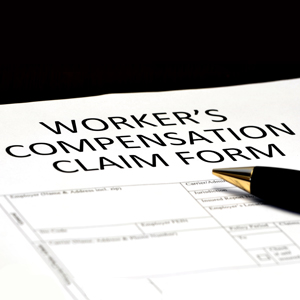
In this article, you can discover… How “Family Responsibilities Discrimination” is understood in Florida. Whether an employer can legally change your schedule during the holidays without notice. How an attorney can help advocate for you as an employee and a parent. Does Florida Employment Law Recognize “Family Responsibilities Discrimination” For Working Parents? Florida currently does not allow a standalone claim for workers to allege that their family responsibilities have led them to be discriminated against. Instead, if you believe you have faced such discrimination, you must put it in some other context, involving illegal class-based bias, such as bias based on sex or race. For example, if men with preschool-age children are welcomed into managerial training courses but women with preschool-age children are not, this could point to management’s perception that women might not be free to attend due to their child…Read More

In this article, you can discover… If Florida workers are entitled to time off during the holiday season for religious observance. Whether you can be forced to participate in holiday-themed or religious-themed activities at work. What to do if pressured to hide or change your religious identity or practices at work. Are Florida Employees Entitled To Time Off For Religious Observances During The Holiday Season? Florida employees can potentially be entitled to time off for religious observance, even during the busy holiday season. If your employer has enough employees and if your absence does not create an undue hardship for your employer, time off for religious observance during the holiday season could be considered a reasonable accommodation. To be frank, these issues can also be very nuanced, and there is never an absolute black and white answer. It is important to understand…Read More

When you’re injured on the job in Florida, your choice of doctor can significantly impact your recovery and your workers' compensation claim. This, for many other reasons, makes understanding how choosing a workers' compensation doctor in Volusia County works and what options you have absolutely vital. In this article, we’ll break down… How medical provider networks (MPNs) operate. Your right to request a different doctor during a workers’ comp claim. How to handle situations where your doctor may not be acting in your best interest. What Is A Medical Provider Network (MPN), And How Do They Work In Florida? Florida workers' compensation law has evolved over time, and at one point, insurance carriers commonly established managed care arrangements, which listed approved doctors and hospitals. Today, however, things are different. While formal networks are less common, insurance companies and employers still have the…Read More

In this article, you will discover: If minors in Florida are eligible for workers’ compensation benefits during a summer job Who can file a workers’ compensation claim in Florida on behalf of a minor When you should contact an attorney if a minor is injured on the job Are Minors Eligible For Florida Workers’ Compensation Benefits Following A Summer Job Injury? Minors are absolutely eligible for Florida Workers’ Compensation if they are injured while working a summer job. Do Florida Workers’ Compensation Laws Differ Based On A Minor’s Age? No, the benefits available to minors are the same as for employees who have reached the age of majority. Does Being Enrolled In School Affect A Minor’s Eligibility For Florida Workers’ Compensation? Enrollment in school does not affect a minor’s eligibility for Florida Workers’ Compensation. Who Can File A Florida Workers’ Compensation Claim…Read More

In this article, you will discover: Whether workers' compensation in Florida covers part-time, seasonal waterpark employees Whether you can waive your rights to workers’ compensation in Florida How to navigate a workers’ compensation claim when the injury was caused by a patron or visitor Are Part-Time And Seasonal Waterpark Employees Covered By Workers’ Comp In Florida, And Does Their Employment Status Impact Their Benefits? Workers' compensation in Florida covers part-time and seasonal employees. Part-time, seasonal status doesn't change the fact that they're entitled to workers' compensation benefits. There is typically a correlation between earnings and compensation paid based on the establishment of an average weekly wage. While the type of benefits available to a part-time, seasonal employee would still be the same as a full-time worker, they would be proportional to the diminished work time and lower wages. Does Signing A Liability…Read More

In this article, you will discover: If workers’ compensation covers Florida workplace injuries that occur during a lunch break The definition of “off the clock” for purposes of workers’ compensation claims If you’re entitled to workers’ compensation for off-the-clock, voluntary work after-hours Are Workplace Injuries During A Lunch Break Covered By Florida Workers’ Compensation Laws? Workplace injuries during a lunch break are covered because Florida courts recognize the “Personal Comfort Doctrine.” That principle holds that what people usually do for personal comfort during their day, within reason, is not inconsistent with work and therefore compensable. The doctrine applies to taking restroom, lunch, or coffee breaks, if the employee doesn't substantially deviate from their primary work purpose and is simply acting in a way to promote their comfort. Therefore, if the employee is on employer-controlled premises and generally engaged in the workday, the…Read More

Construction sites can be dangerous, and workers injured on the job have specific rights and options under Florida’s workers’ compensation laws. Understanding your rights after a Florida construction site injury is essential for getting the medical treatment and financial support you deserve. In this article, we’ll walk you through… The most important things you should know about reporting injuries. How long you have to file a workers’ comp claim as an injured construction worker. The potential legal issues you may face and how an attorney can help you navigate them. To Whom Do I Need To Report A Construction Injury? If you're injured on a construction site in Florida, you should report the injury to your immediate supervisor as soon as possible. If the supervisor does not respond promptly, escalate the report to someone higher in the management hierarchy. Can I Be…Read More

When you're recovering from a workplace injury, being asked to return to light duty can raise a lot of questions, especially if the work seems more demanding than your doctor recommends. Understanding your rights under light-duty workers' compensation in Florida is key. In this article, we’ll explain… What “light duty” actually means under Florida law. Who decides if you’re ready for light duty. What legal options you have if your employer pushes too hard or too soon. What Does Light Duty Mean Under Florida Law? Light duty is an informal term used to describe work that accommodates medical restrictions without completely removing the employee from the workforce. While Florida law doesn’t precisely define light duty, it generally refers to modified tasks that fall short of full-duty responsibilities. These restrictions are based on functional limitations, such as lifting restrictions or limited use of…Read More

If you’ve been injured on the job in Florida, one of the most important factors in your workers’ compensation claim is the indemnity rate or the amount you're paid to make up for lost wages. But calculating that rate isn’t always straightforward. In this article, we break down… How Florida’s workers’ comp indemnity rate calculation works. What income should be included in your workers’ comp application. Common errors to avoid that could result in underpayment. What Is An Indemnity Benefit In Florida Workers’ Compensation Law? In Florida Workers’ Compensation law, an indemnity benefit refers to the partial wage replacement paid to an injured worker who is unable to work due to a job-related injury. These payments help compensate for lost income during the time the worker is recovering and unable to earn their regular wages. How Is My Average Weekly Wage Calculated…Read More

Reasons To Think Twice Before Suing Your Boss "You'll never work in this town again!" It's a line straight out of a movie, but it does play out in real life sometimes. Filing a lawsuit against your employer may feel like standing up for what's right, but the ripple effects can get messy. Legal battles take time, money, and energy. And if you're not careful, your career could take a hit you didn’t see coming. Before you march into court, take a step back and consider what you’re really up against. Can An Employer Blacklist You? Technically, there’s no official “blacklist” floating around Florida HR departments. But that doesn’t mean it’s all good. Employers can share your work history with future employers; and if you’ve filed a lawsuit, complained to OSHA, or reported harassment, that might come up in more ways than…Read More